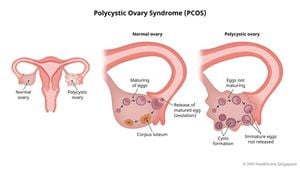February 14, 2025, marks not just Valentine’s Day this year but also various significant events and observances across India, showcasing the nation’s rich cultural diversity and vibrant traditions. From important dialogues between farmer leaders and the government to iconic classical dance festivals, this day promises to offer much more than flowers and chocolates.
One of the key occurrences is the ‘Academia-Industry-Govt Conclave 1.0’ organized at Shivaji University, Kolhapur, scheduled for February 14-15. The event, which is themed ‘Innovations and Startups for a Vikasit Bharat -2047’, aims to gather dignitaries from universities, researchers, and various government departments to discuss startups, self-employment, job creation, and financial assistance available from the government and financial institutions. The pro-vice chancellor of Shivaji University, Dr. Pramod Patil, emphasized the importance of this conclave, stating, "This conclave will present various concepts relating to startups and the challenges faced in this sector." Notably, organizations such as the Maharashtra State Innovation Development Society and the Ministry of Micro, Small and Medium Enterprises are set to participate, underscoring the event’s relevance for India’s future.
Meanwhile, for many, February 14 has also been notable for its recognition of cultural festivities. The government of West Bengal has declared holidays on both February 13 and 14 for Shab-e-Barat and the birth anniversary of Thakur Panchanan Barma. Originally, only February 14 was designated as holiday for Shab-e-Barat, which is observed on the night of the 15th of Sha’ban, but with the confirmed date for the holiday being extended to the 13th, people can expect to see all government offices, schools, and institutions closed. This arrangement allows government employees to enjoy a long four-day weekend, integrating observance with practicality.
Telangana is also observing cultural practices, closing schools on February 14 for Shab-e-Barat, with February 15 designated as the government holiday for Sant Sewalal Maharaj Jayanti. Here too, schools will see closures for three days, including the weekend. Shab-e-Barat is particularly significant, as it is embraced by Muslims as a night of prayers for forgiveness and mercy, making it both reflective and communal.
Further enriching this day’s cultural offerings is the week-long Nishagandhi Dance Festival hosted at the historic Kanakakkunnu Palace grounds, starting on February 14. Noted as one of India’s iconic classical dance carnivals, the festival aims to feature outstanding classical dancers from various traditions, including Kathak and Bharatanatyam. At the festival's inaugural ceremony, Tourism Minister P.A. Mohamed Riyas will bestow the prestigious Nishagandhi Puraskaram on esteemed Kathak exponent Pandit Rajendra Gangani for his significant contributions to Indian classical dance. This honor includes prize money, alongside the opportunity for audiences to witness captivating performances, including daily Kathakali shows and dances choreographed by notable figures. The minister mentioned, "This festival brings alive recent trends in Indian classical dance and sets the stage for upcoming artists," indicating its role as not just entertainment, but as cultural fostering.
February 14 holds even broader social and political significance with the farmers' protests continuing steadfast across India. Jagjit Singh Dallewal, leader of the farmers’ unions, who is currently on his 79th day of indefinite fasting, expressed his intention to partake in upcoming talks with the central government scheduled for this day. After addressing fellow protesters at the Khanauri site, he stated, "Health issues are not something to be worried about. I will make my best effort and look forward to the meeting with the government panel." The discussions are aimed at addressing long-standing strategies for agriculture and ensuring robustness within the sector. Dallewal voiced concerns about the issue of deported youth from the farming community and pressed for comprehensive reforms to combat the unfavorable agricultural policies responsible for many seeking opportunities abroad.
Overall, February 14, 2025, stands out as a day packed with cultural significance and political engagement. From the opening of the Nishagandhi Dance Festival to pivotal conclaves and aligning government holidays—all representing facets of Indian society—this date embodies not just festive spirit, but also the urgency of agricultural reforms and the voices of those championing for change.



